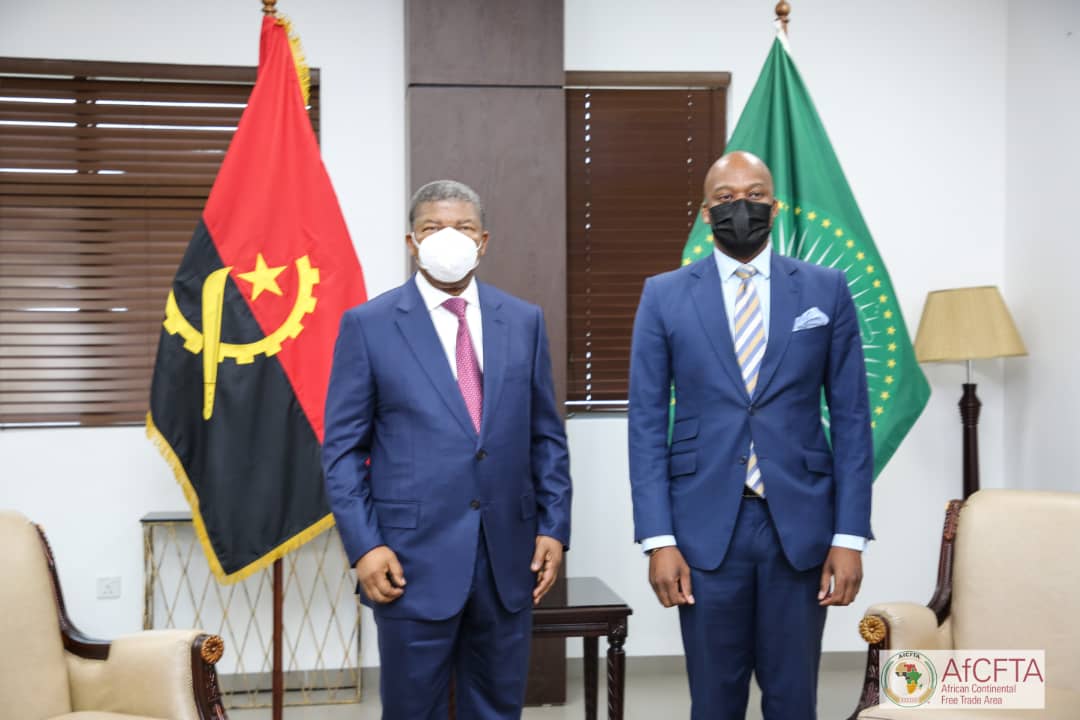Secretary General of the AfCFTA Secretariat, Mr. Wamkele Mene has urged the business community to see Africa’s unmet needs as opportunities for entrepreneurship.
“Of course, there are challenges; but I urge you to see the challenges as a spur for innovation,” he said on Tuesday.
He was addressing AfCFTA-Angola Business Investment Forum in Accra as part of the working visit of João Manuel Gonçalves Lourenço, President of the Republic of Angola to Ghana.
The aim of the forum was to further expand bilateral business relations through the promotion of two-way investment and mutually complementary partnerships in the relations between Ghana and Angola.
In what he termed a “very simply” message to entrepreneurs in Africa and across the globe, the AfCFTA boss declared, “Africa is open for business”.
He pointed out that the business potential of the continent is tremendous in various sectors, including agriculture, energy, infrastructure, natural resources, and information and communications, offering opportunities for entrepreneurs.
“For example, with the vast uncultivated arable land, Africa has the potential to ensure its own food sufficiency and be a major supplier in global food markets,” Mr. Wamkele Mene opined.
He said the AfCFTA is set to effectively harmonise trade in goods and services in addition to improving the business environment by reducing tariff and non-tariff barriers on the continent.
The move, he stated, marks a new trade and investment era for Africa and offers a wide range of possibilities for businesses across various sectors in the member states.
“With harmonised trade regulations and better movement of goods and services across the continent, the case for production in Africa for Africa is now a reality, where business operators in the member states can play a significant role,” Mr. Wamkele Mene said.
According to him, if AfCFTA is duly domesticated by countries and implemented as designed, it could help Africa achieve the future Africans want – an integrated, prosperous and peaceful Africa.
He outlined the Phases encompassing the AfCFTA:
Phase I protocols of the Agreement which aims to reduce significantly tariffs and non-tariff barriers to goods and advance in the liberalization of trade in services,
Phase II involves agreements on investment, competition policy and intellectual property (IP) rights,
Phase III will involve provisions on e-commerce. The expectation is that negotiations on all these phases will be completed by the end of 2021.
Secretary General of the AfCFTA Secretariat also mentioned the Protocol on AfCFTA dispute resolution which further enhances the value proposition for entrepreneurs by making investment in Africa less risky for investors.
“The introduction of a continental simplified trade regime should provide small and informal businesses with greater protection, and support their participation in the new export opportunities created by the AfCFTA,” he noted.
“Today, the case for investing in Africa is stronger than ever. Africa will remain a competitive investment destination for decades to come because of its improving relative risk profiles, demography and continental integration.”
Ghana’s Alan Kyerematen, Minister for Trade and Industry extolled the benefits of AfCFTA as many economies struggle in the midst of the pandemic.
“The AfCFTA provides a unique platform to guide Africa’s post COVID-19 economic recovery effort,” he noted.
Under the framework of AfCFTA, he reiterated, Ghana and Angola have a lot to gain from working together in fields such as agriculture, fisheries, livestock, industry, oil and gas, the petrochemical industry, value addition to our mineral resources, development of energy resources particularly renewable energy and the FinTech industry.
For instance, he shared how how Africa can revolutionize its cassava industry to create jobs for people and improve rural incomes.
Incidentally, Ghana and Angola are the second and third largest producers of cassava in the world, with Nigeria being the first.



































































